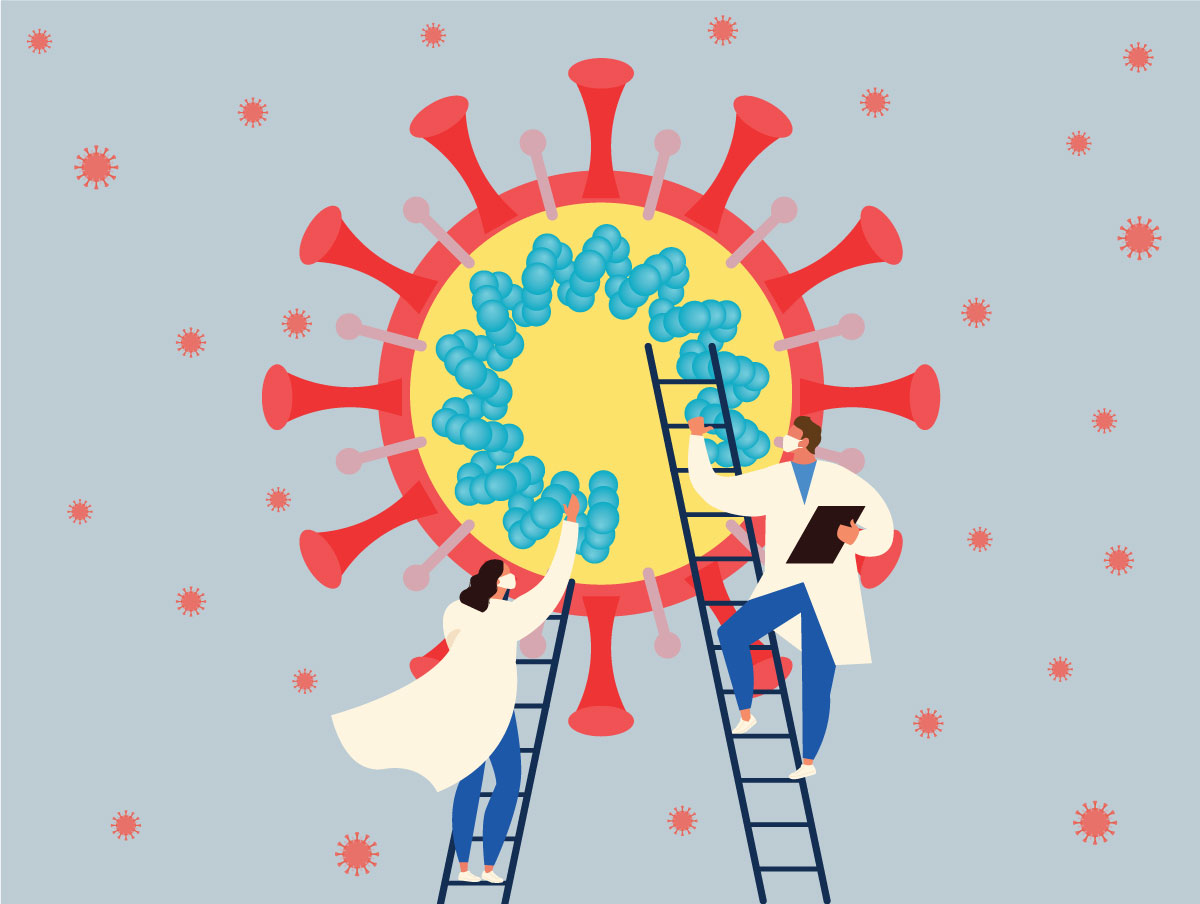For all those hunkering down at home, craving more up-to-date resources and verified, trustworthy information on the coronavirus, CoviDB.org may have some answers. Created and launched on April 6, this initiative is a crowdsourced education platform built to provide high-quality, community-vetted resources on the coronavirus.
Conceived and launched by TeachAids, a nonprofit pioneer in worldwide infectious disease education, the site works with faculty, students and alumni from Stanford University, Massachusetts Institute of Technology, Harvard University, Dartmouth College, University of Colorado and others around the world. From education and medicine to diagnostic tools, the site has been organized to make it easy to access vital information.
“CoviDB allows us to direct and manage the different skillsets of our all-volunteer workforce,” said the site's founder, Dr. Piya Sorcar, who is an adjunct affiliate at the Center for Health Policy and the Center for Primary Care and Outcomes Research, at Stanford. TeachAids, which works with more than 300 partners, has produced education content used in 82 countries and provided vital, culturally sensitive healthcare information in some of the most information-starved parts of the world.
A chance to give back
As COVID-19 developed into a pandemic, closing campuses around the U.S., a group of students at Stanford initially developed a project called Stanford Mutual Aid, which helped compile and distribute resources for students affected by the campus shutdown. Shravya Gurrapu and Elena Mosse, computer science students at Stanford, were a part of this effort and said they wanted to do more.
“We were becoming increasingly aware of the challenges our community was facing through supporting our peers at Stanford,” said Garrapu. “We recognized such issues were in many cases only a fraction of the challenges those around the globe were confronting.” Both Gurrapu and Mosse were TeachAids Fellows and decided to reach out to their advisors, who encouraged them to think bigger.
“TeachAids was also contemplating various projects to support COVID-19,” said Sorcar. “Our sources are reviewed by leading researchers and educators from around the world, giving you peace of mind that the site you’re reading is trusted by us.” The initiative was conceived, built, and launched in a single week, by groups working entirely remotely while social distancing.
Amid the grief people are currently experiencing, many are looking for ways to help – and CoviDB captures that spirit, making it easy for people to contribute resources to the site or volunteer to help maintain and improve its features.
Citizen centered, volunteer driven
Students have always played a big role at TeachAids, said Sorcar, whether as volunteers, interns or fellows. “Our young TeachAids volunteers were able to reach out to their friends despite where they live. The growth happened organically.”
Now the site is looking for more collaborations from students and people from around the world. As an open platform, anyone can contribute a resource that helps build out the site, and it’s as simple as filling out a Google form. All submitted information is then vetted by a panel of experts before being published on the site.
Additionally, CoviDB team advisors and specialists submit their own curated resources as they encounter them during the course of work. There are opportunities for those who would like to provide more, and have skills, passion, and the bandwidth to commit as a volunteer in a meaningful way.
“The advantage of working with a distributed group is always diversity," Sorcar added, and the role of students in creating the site was crucial. "Our differences in mindsets, skills, perspectives, and voice strengthens whatever you’re building. The voices of the students were so important to highlight because their passion is what fueled getting the project off the ground as soon as possible. Not only are the students the voice of a generation that’s experienced much in their young lives – they’ll also be living with the cultural impact of the COVID-19 outbreak for a very long time.”
For CoviDB, the volunteer staff is continually transitioning based on availability. People are not locked into a fixed commitment, so the team works with whatever the volunteers can give. That constant rotation also brings new ideas and perspectives to the team on an ongoing basis.
“Our hope is that CoviDB will be a living hub for up-to-date information on any topics relating to COVID-19. We look forward to building a global community of users who are contributing to the platform and working to share and collate information through the site,” said Gurrapu and Mosse. "We hope this will foster community empowerment and connectedness through the power of information, during times of fear and unprecedented challenges.”
You can meet some of the members of the CoviDB team viewing their launch video. To get involved, please send any tips or resources to info@covidb.org. Follow the author @ParoP.














